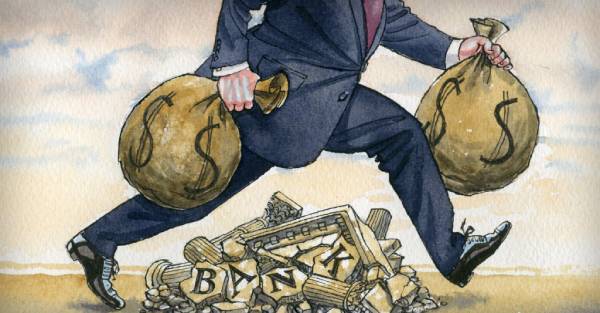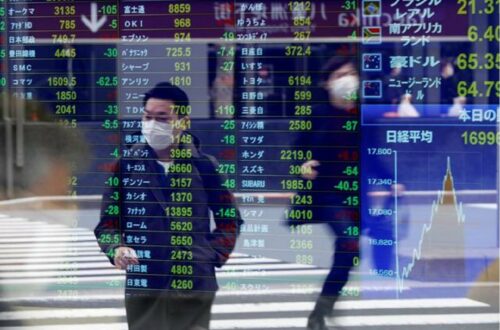
The covered up ‘replication emergency of money
Are areas of renowned monetary scholarly examination genuinely counterfeit?
It might seem like a low-spending plan Blade Runner rip-off, however the logical world has been held by a “replication emergency” during the last decade, with significant consequences for the discoveries of numerous milestone examines. Is venture experiencing an equivalent ailment?Campbell Harvey, a Duke University finance educator, makes this hazardous case. A big part of the 400 purportedly market-beating strategies recognized in driving monetary distributions consistently, he accepts, are phony. More terrible, he is worried that a considerable lot of his partners are uninformed of the circumstance.
It may seem like a low-financial plan Blade Runner rip-off, but over the earlier decade the logical world has been held by a “replication emergency” — the discoveries of numerous original examination can’t be rehashed, with enormous ramifications. Is contributing impacted by one thing similar?
It might seem like a low-spending plan Blade Runner rip-off, however over the previous decade the logical world has been held by a “replication emergency” — the discoveries of numerous fundamental examinations can’t be rehashed, with colossal ramifications. Is contributing experiencing something almost identical?
That is the combustible contention of Campbell Harvey, educator of money at Duke college. He figures that portion of the 400 apparently market-beating systems recognized in top monetary diaries throughout the years are false. More terrible, he stresses that numerous individual scholastics are willfully ignorant with regards to this.
It’s a colossal issue,” he says. “Stage one in managing the replication emergency in finance is to acknowledge that there is an emergency. Furthermore, at the present time, a large number of my partners are not there yet.”
To get what the ‘replication emergency’s is, the means by which it has occurred and its suggestions for finance, it assists with beginning at its more extensive beginning.
In 2005, Stanford clinical teacher John Ioannidis distributed a stunner exposition named “Why Most Published Research Findings Are False”, which noticed that the consequences of numerous clinical examination papers couldn’t be recreated by different specialists. Along these lines, a few different fields have directed an unforgiving eye back toward themselves and arrive at comparable resolutions. The core of the issue is a peculiarity that specialists call “p-hacking”.
He has composed in excess of 150 papers on finance, a few of which have won lofty prizes. Indeed, Harvey’s 1986 PhD postulation originally showed how the security market’s bends can anticipate downturns. All in all, this isn’t care for a kid saying the ruler has no garments. Harvey’s raising analysis of the meticulousness of monetary scholarly world beginning around 2015 is more likened to the sovereign remorsefully announcing his own nakedness.
Harvey ascribes the scourge of p-hacking to impetuses in scholarly world. Getting a paper with an exciting finding distributed in a lofty diary can procure a driven youthful teacher a definitive prize — residency. Squandering a very long time of work on a hypothesis that doesn’t hold up to investigation would disappoint anybody. It is thusly enticing to torment the information until it yields something fascinating, regardless of whether different scientists are later unfit to copy the outcomes. Clearly, the stakes of the replication emergency are a lot higher in medication, where lives can be in play. Yet, it isn’t something that stays bound to the ivory pinnacles of business colleges, as venture bunches frequently smell a chance to sell items dependent on clearly market-beating factors, Harvey contends. “It channels into this present reality,” he says. “It most certainly makes it into individuals’ portfolios.”
Harvey ascribes the scourge of p-hacking to impetuses in scholarly world. Getting a paper with an exciting finding distributed in a lofty diary can procure a driven youthful teacher a definitive prize — residency. Squandering a very long time of work on a hypothesis that doesn’t hold up to investigation would disappoint anybody. It is in this way enticing to torment the information until it yields something intriguing, regardless of whether different analysts are later unfit to copy the outcomes.
P-hacking is when specialists unmistakably or subliminally bend the information to track down a hastily convincing at the end of the day misleading connection between factors. It very well may be finished by singling out what measurements to gauge, or quietly changing the time span utilized. Since something is barely measurably critical, doesn’t mean it is really significant. An exchanging technique that looks brilliant on paper may turn up only chunks of coal when really carried out.
In measurements, a p-esteem is the likelihood of whether a finding could be a result of unadulterated possibility — a basic information peculiarity like the relationship of Nicolas Cage movies to US pool drownings — or regardless of whether it is “measurably critical”. P-scores demonstrate whether a specific medication truly helps, or then again if modest stocks do beat over the long run.
Clearly, the stakes of the replication emergency are a lot higher in medication, where lives can be in play. However, it isn’t something that stays bound to the ivory pinnacles of business colleges, as speculation bunches regularly smell a chance to sell items dependent on evidently market-beating factors, Harvey contends. “It channels into this present reality,” he says. “It certainly makes it into individuals’ portfolios.”
AQR, a noticeable quant speculation bunch, is likewise suspicious that there are many sturdy and fruitful elements that can assist financial backers with beating markets, however contends that the “replication emergency” uproar is exaggerated. Recently it distributed a paper that inferred that not exclusively could most of the examinations it inspected be reproduced, they actually worked “out of test” — in real live exchanging — and were in reality additionally substantiated by worldwide information.
Mia is a literature author. Mia was not interested in becoming a writer when she was a child, a fact which she himself admits that separates her from fellow writers she has met. As a young adult, Mia did not know what she wanted to be. she remembered, however, how in high school, she had been a class clown, and that made her decide to become a books writer. Later on, she moves toward the writing news articles. In recent she writes her news on Stock Invests.
Disclaimer: The views, suggestions, and opinions expressed here are the sole responsibility of the experts. No STOCK INVESTS journalist was involved in the writing and production of this article.





